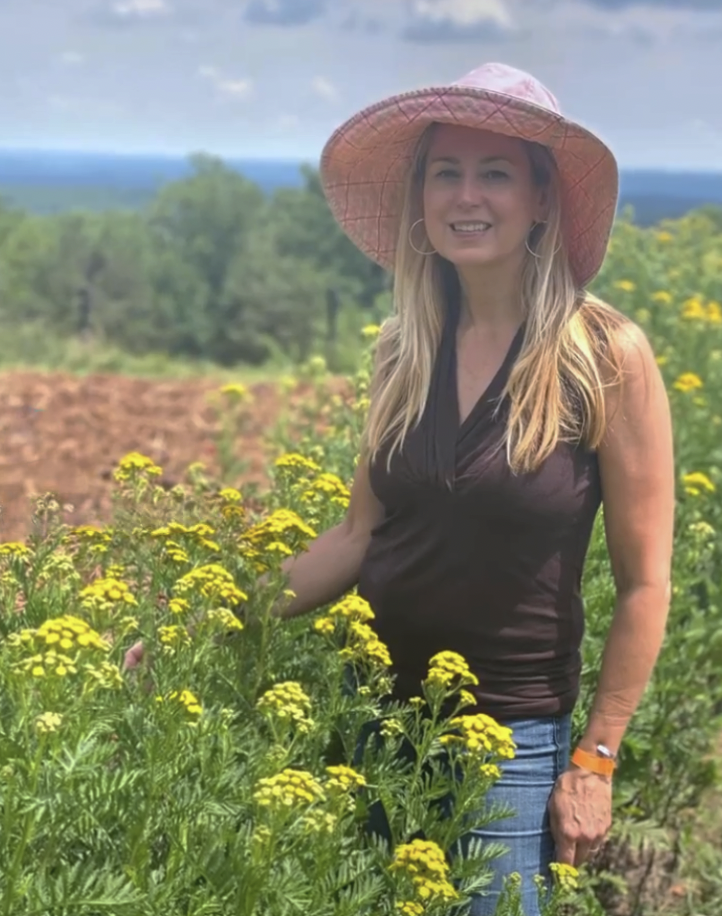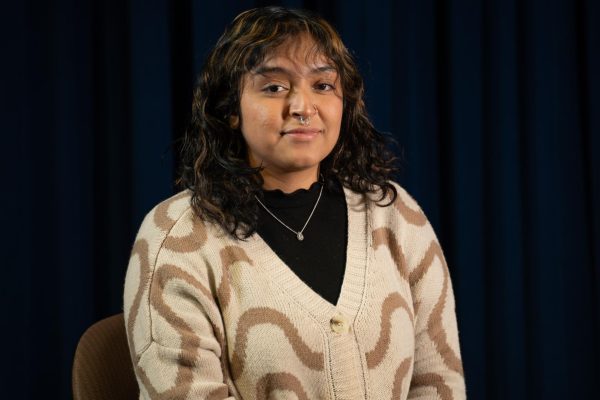At Rowan University, many of the school’s faculty and staff are doing their part to be more eco-friendly. Some accomplish sustainability goals through teaching, hobbies outside of class, and research.
At the School of Earth and Environment at Rowan, one professor teaches her students “The Future of Food.” Toni Farmer teaches the introductory course level class on the impact of food production on the earth, including soils, water, and climate. The course explains what different types of crops will grow as the climate changes.
Farmer’s knowledge of agriculture comes from her background in gardening and her Master’s Degree in regenerative agriculture from the University of Pennsylvania.
“Around the world, we’re experiencing massive drought right now, and here in New Jersey, we haven’t had rain here for six weeks,” said Farmer. “The cost of milk has gone up, so having students at Rowan understand their food system is critical.”
She makes her class very interactive for students so they understand the material. Farmer believes in hands-on experiential learning and uses every chance she can get to bring in objects like soil, seed, and weed samples for the students.
“I gave everyone craft supplies, and instead of giving the lecture, I had them make a 3D model and they taught the class about what they had created,” said Farmer. “I am known for bringing a live chicken into the classroom. I want them to connect to the fact that these are real animals, not just something under plastic.”
Her gardening experience started 30 years ago in her backyard, where she grew various fruits and vegetables, and raised chickens. Her website, Toni Farmer’s Garden, is a blog that educates people to grow a sustainable garden in their homes so they can supply themselves with food. She encourages people to eat from what they can grow.
“I’ve been gardening forever, and no one ever cared. I would talk about gardening, and try to convince people to garden. Everyone’s like, Toni, why don’t you just go to the grocery store?” said Farmer. “In March of 2020, when everyone got sent home two other things were happening. The wellness movement was starting to gain energy.”
Her blog features steps on how to properly plant a seed, organize a pantry with no plastic, organic pest control methods, and a lot more. She emphasizes the importance of gardening not being easy, as one can fail many times before growing something the first time.
“I have a huge Facebook group called Toni Farmer’s Garden Club, it’s got almost 4000 members in it, and I do daily Q&A’s. So if you start a garden and your green beans come up, but they’re not producing any, you can take a picture and post it there,” said Farmer.
Through her work as a master gardener, she has gained recognition from media outlets such as SJ Mag Media and Fox 29 News in Philadelphia. At SJ Mag Media, she has been a part of five seasons with co-host Marianne Aleardi, who Farmer said had never grown anything in her life. In the show, “The Goal is to Become a Gardener,” Farmer walks through the steps of growing a garden, maintenance, and much more.
A motivator for her gardening comes from the impacts of climate change and food justice. In 2023, 13.5% of U.S. households were suffering from food insecurity. The causes of this range from not having enough money to buy groceries, to people living in food deserts.
“I’ve spent a long time working in Camden, New Jersey at a nonprofit called Urban Promise, six miles from my house. There are kids in my community driving Porsches to school, there are kids who do not have enough to eat,” said Farmer. “They don’t have heat in the winter, they don’t have a warm coat. They shouldn’t go without food.”
Food insecurity impacts low-income families the most, and Farmer believes that fast and processed foods are marketed as easy, cheap meals. In reality, these meals create potential health issues for children due to a lack of access to fresh foods.
It also impacts college students, especially as they balance tuition bills, rent, groceries, and much more. For commuters, they must also balance gas fees and car maintenance, and if at home they do not have access to food, these problems also arise for them.
“I bring food into my classroom, I talk about how to food prep, how to cook inexpensive meals,” said Farmer. “I feel like if the students demanded we grow food on campus to feed students, the university would have a hard time not saying yes, we’ve got raised beds by Magnolia. Small and completely managed by students, but it could be so much larger.”
The community garden, usually maintained by members of the Rowan Environmental Action League, holds events like “Weeding Wednesdays” for other students to learn about gardening. Farmer believes that this community garden can expand in open spaces across campus to increase gardening and growing fresh foods for students at Rowan.
Toni Farmer’s work at Rowan has broadened students’ views of growing food at home, relying less on grocery stores and gaining new maintenance skills. Her work goes far beyond her class, “The Future of Food,” and it’s just an example of what other professors around the world have the opportunity to accomplish.
For comments/questions about this story DM us on Instagram @thewhitatrowan or email [email protected]























































































































































!["Working with [Dr. Lynch] is always a learning experience for me. She is a treasure,” said Thomas. - Staff Writer / Kacie Scibilia](https://thewhitonline.com/wp-content/uploads/2025/04/choir-1-1200x694.jpg)









































